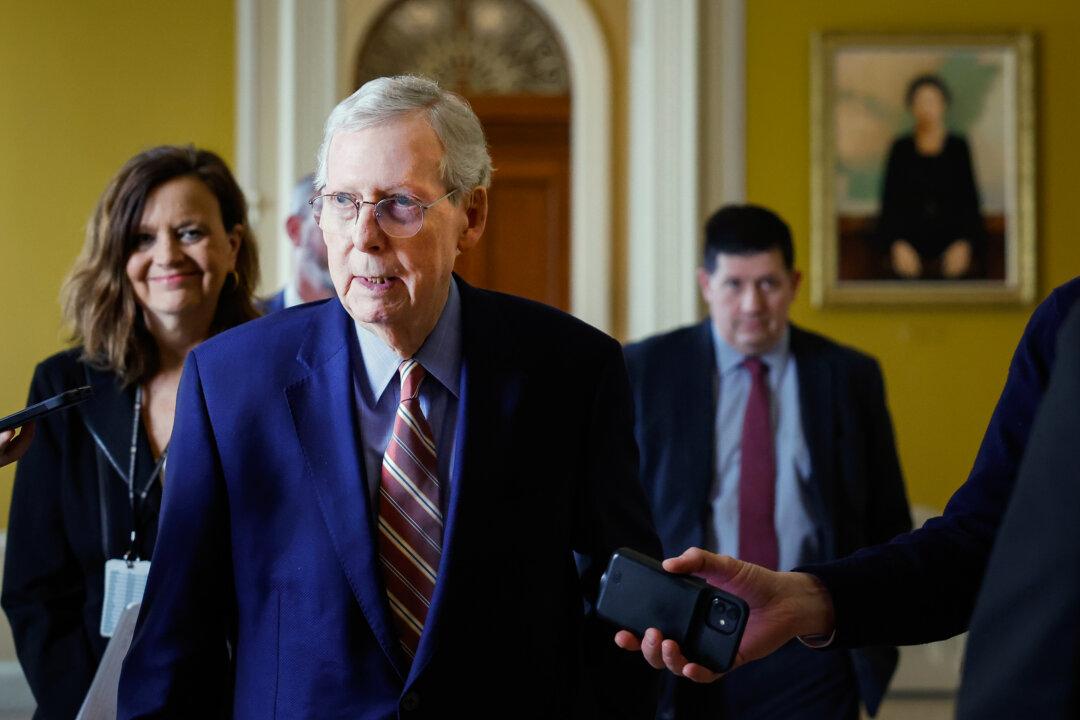Senate Republican Leader Mitch McConnell (R-Ky.) said on Monday that GOP lawmakers in the upper chamber are “not going to allow the government to shut down.”
He made the comment to reporters before entering the Senate chamber at the start of a week in which lawmakers will labor to reach a deal to fund the government beyond Friday. Without the deal, a partial government shutdown may occur.





